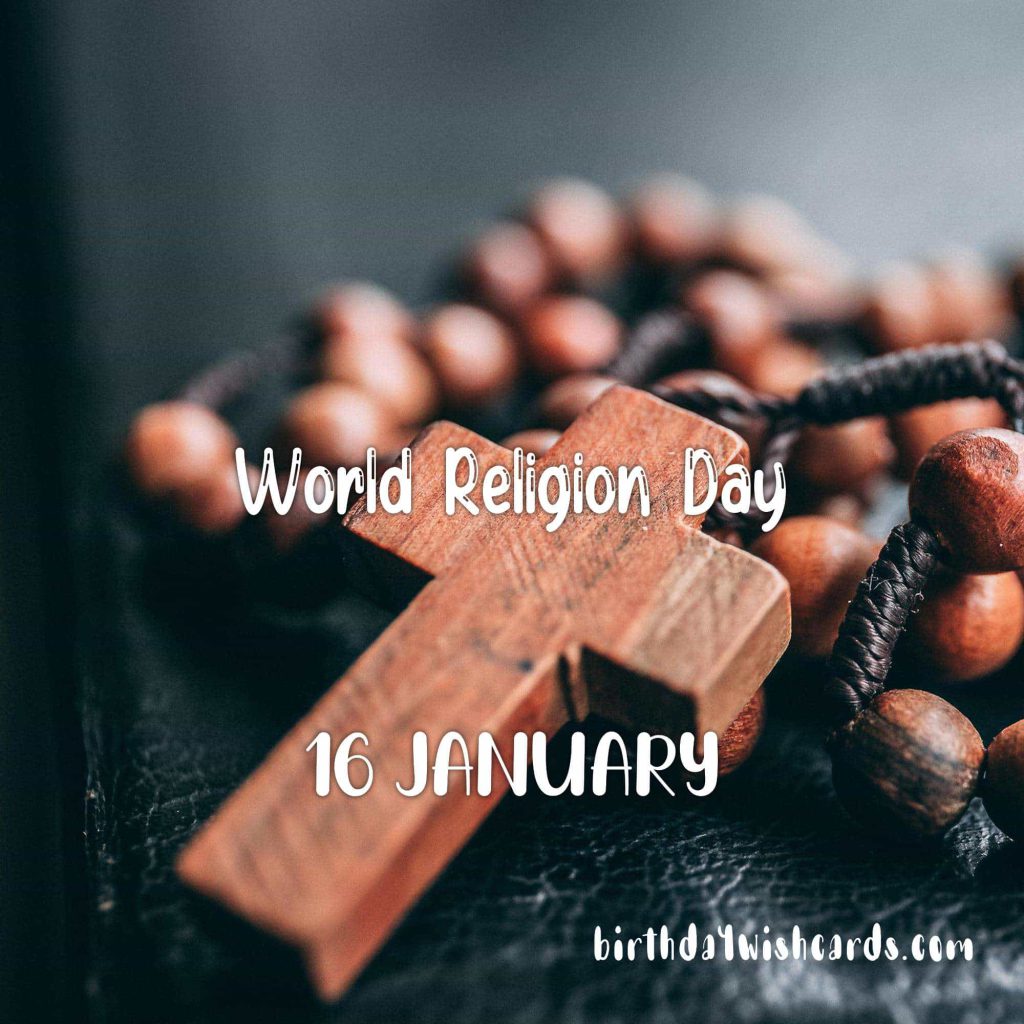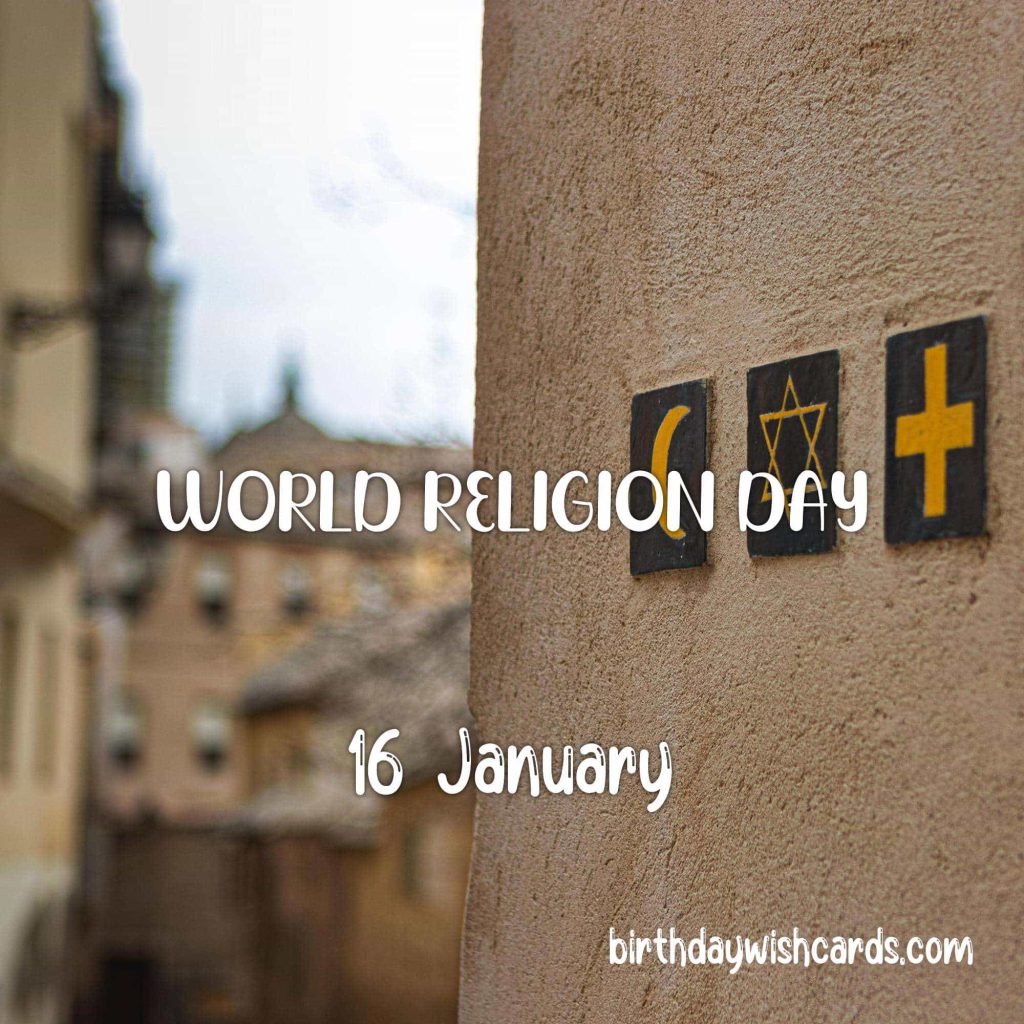
16 January: World Religion Day
History of the Day
World Religion Day originated in October 1947 with the event “World Peace Through World Religion”, held at the Eastland Park Hotel in Portland, Maine. This gathering featured a keynote address by Firuz Kazemzadeh and laid the foundation for what would become a global observance. By December 1949, communities across the United States began marking the day, and local newspapers started referring to it as “World Religion Day.”
The National Spiritual Assembly of the Baháʼís of the United States played a pivotal role in formalizing the observance in December 1949, setting the first official celebration for January 15, 1950. The initiative quickly gained international traction, with early observances in two Australian cities in 1950 and in Bolivia by 1951. By 1958, Baháʼí communities were organizing World Religion Day events in numerous countries, often drawing hundreds of participants and sometimes aligning with efforts to promote racial harmony.
For instance, in Laos, World Religion Day was observed in 1958, 1959, and 1960, highlighting the event’s growing reach. Similarly, in 1962, several Dutch cities hosted commemorations, reflecting the expanding international participation.
Observance of the Day
World Religion Day is observed annually on the third Sunday of January. Established in 1950 by the National Spiritual Assembly of the Baháʼís of the United States, the day is now celebrated worldwide. While its origins are Baháʼí, the observance has become a global event, honored by people of many faiths.
The day is rooted in Baháʼí teachings that emphasize the unity and interconnectedness of all religions. It recognizes religion as a dynamic force throughout human history, fostering peace and spiritual harmony. World Religion Day highlights the shared spiritual principles of the world’s faiths and their essential role in uniting humanity.
Purpose of the Day
The central Baháʼí principle behind World Religion Day is the oneness of religion: the belief that religious truth is progressive and fundamentally unified, despite cultural and historical differences. The day promotes the understanding that the spiritual foundations of the world’s religions are harmonious and that religion itself is vital for fostering global unity.
Clarifying the intent of World Religion Day, the Universal House of Justice—the elected governing body of the Baháʼí Faith—explained in a 1968 message that the observance is not simply a platform for showcasing all religions and ideas. Rather, it is a celebration anticipating the emergence of a world religion for humanity, with the Baháʼí Faith understood as fulfilling that vision.
This perspective was further emphasized in April 2002, when the Universal House of Justice addressed the world’s religious leaders in a letter titled “To the World’s Religious Leaders,” stating:
Evolution and Modern Observance
Over the years, World Religion Day has grown beyond its Baháʼí origins. Although first promoted by the Baháʼí community, the observance is now embraced by a wide range of interfaith and multi-faith organizations. Today, it serves as a universal call for religious unity and peace.
While Baháʼí institutions such as the Universal House of Justice and the National Spiritual Assembly of the Baháʼís of the United States continue to support World Religion Day, they no longer actively organize specific events. Instead, local and international groups now host celebrations and educational activities, encouraging dialogue and cooperation among diverse faith traditions.
Significance and Impact
World Religion Day stands as a powerful reminder of the shared spiritual values that underpin the world’s religious traditions. It encourages individuals and communities to look beyond doctrinal differences and recognize the common goal of fostering peace, love, and understanding among all people.
By emphasizing religious unity, World Religion Day strengthens interfaith dialogue and collaboration—efforts that are essential in addressing global challenges such as conflict, intolerance, and social division. The day also inspires reflection on how religion can serve as a positive force for social cohesion and humanitarian progress.
How World Religion Day is Celebrated
World Religion Day is celebrated in diverse ways across the globe. Common observances include multi-faith gatherings, educational seminars, public lectures, prayer services, and cultural exchanges. These activities promote mutual respect and deepen awareness of the spiritual insights shared by the world’s major religions.
Events often bring together representatives from different faith communities, scholars, activists, and members of the public who are interested in fostering harmony through understanding. Common themes include peace, unity, and the shared responsibility of religions in advancing the welfare of humanity.
Visual Celebrations
The diversity and beauty of religious traditions are often highlighted through art, music, and cultural performances during World Religion Day events. These creative expressions illustrate the shared spiritual heritage that unites humanity, despite outward differences.
Below are images capturing the spirit of World Religion Day, showcasing moments from various celebrations and gatherings:








